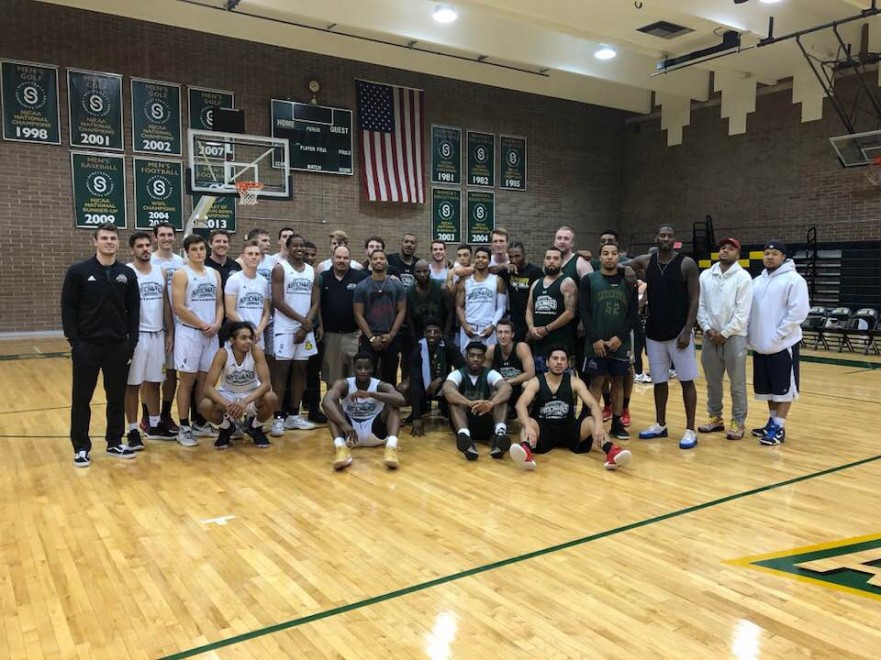This past week I was asked to coach basketball again at my old romping grounds at Scottsdale Community College. The alumni game is a new tradition that takes place every year prior to the regular season and I was honored to be given the opportunity to coach a lot of my former players. We laughed, we hugged, and we reconnected. It was one of the best nights I have had in a very long time. However, what we talked about after is what I wanted to share with you my readers. A warning to parents that grades matter and discipline is a must.
In the years I recruited and scouted in college and European semi pro, we always went after the big fish. It was our job to recruit and sign the best players possible for next year’s roster. If their student skills were lacking, we would find a way. There was a lot more room back then to shine up diamonds in the rough.
Today that landscape has changed and what parents need to know is, if their sons or daughters decide to play at the next level, you need to know what colleges are looking for. You may be amazing on the field, but if you are a liability in the classroom or off the field, your chances of playing college ball are drastically diminished.
My friend Mark is one of the best coaches I know. As a college coach, his insights into recruitment go far and wide. After the game that night we talked a lot about the face of the new college athlete. High school athletics is very different from what you and me might recognize. There is definitely a certain amount of pedigree that goes along with this new high school athlete. You don’t just come out of nowhere very often anymore. More than likely you played in a certain club or high school program that has connections to certain colleges. College coaches know who produces the kinds of kids they are looking for. With AIA rules now allowing for year-round training, high school coaching is no longer just a seasonal sport with some summer camps. It is a nonstop year-round commitment.
With all that being said, todays college athlete hopeful must be discipled both on and off the court. That means knowing how to execute plays but to also how to handle your business in the classroom. No coach today wants to mess with underachievers that can’t perform in the classroom and as harsh as it sounds the truth is there is always the next man up. In other words… everyone is expendable.
What you will notice about the power programs in the state today, is that the kids all have certain characteristics they didn’t have 10 years ago. Most of them have higher GPAs than in years past. Many are pretty good students and they have evolved in a system that is all encompassing and very much tailor made for kids from early grades to the varsity ranks. Clubs have also contributed to this meatgrinder of athletes, and now the successful programs are blends of both the public-school program and the club program intermixed together to provide a pipeline from youth to varsity athletics.
These programs are year-round, they are tough, and they produce winners. But what the great programs all have in common, is that they produce students who are capable of handling their stuff. You look at our states top recruits and they are efficient at handling tough workloads. So, to any hopeful college athletes out there, understand and know that you may amazing on the field or the court, but if you don’t come with the skills and ability to pass your classes and stay disciplined in your day to day, you will not go far. In todays environment, grades and discipline matter










Comments 2
This is really interesting. I don’t live in the world of sports but I do know that many of the students I teach are hoping that they will be able to play sports in high school and beyond. The population of students I work with have an emotional disability and often tell us that their grades don’t matter, they are just going to play ball. Good to know that I have some data to start pointing them towards.
This reminds me so much of the so called “Soft Skills” that are really hard teach directly so they have to be built into classes and projects. Sports are great at developing them as well. On a related issue, the other day in class we were talking about transferable skills, particularly as related to problem-solving. It seems like it’s become a two-way street with both schools and teams expecting mastery of activity-related skills and over all personal development. Nice piece.